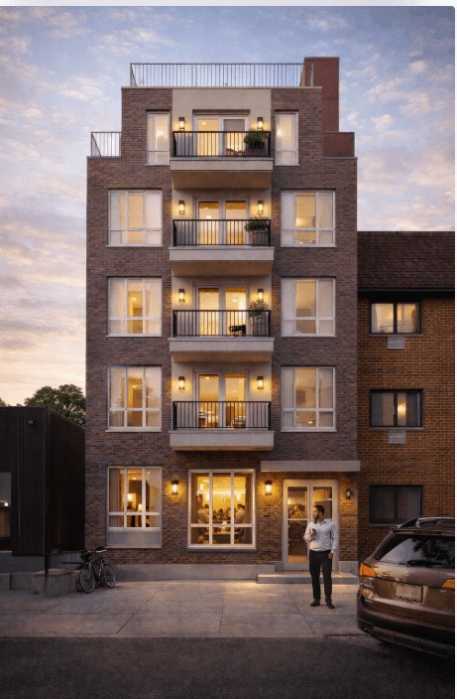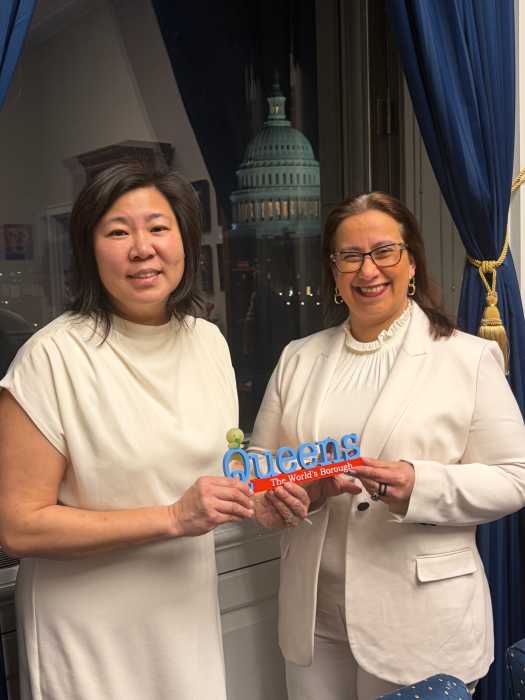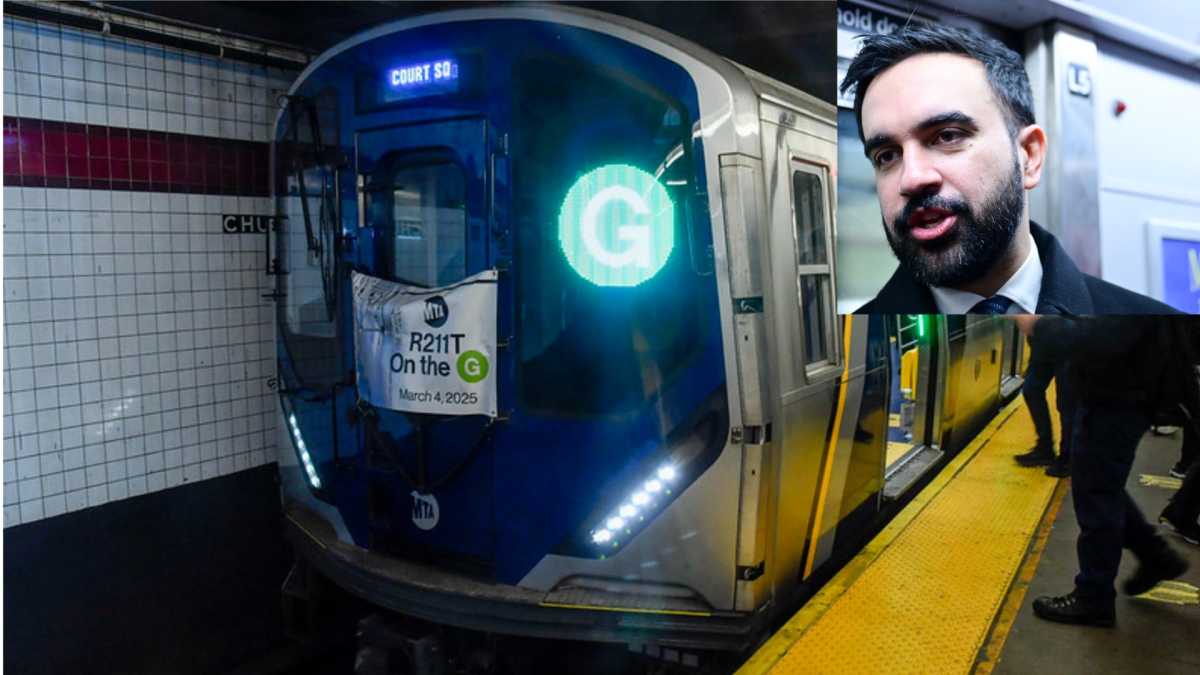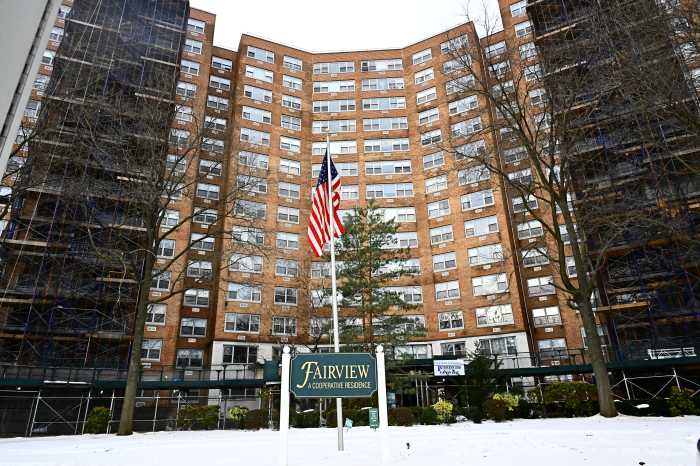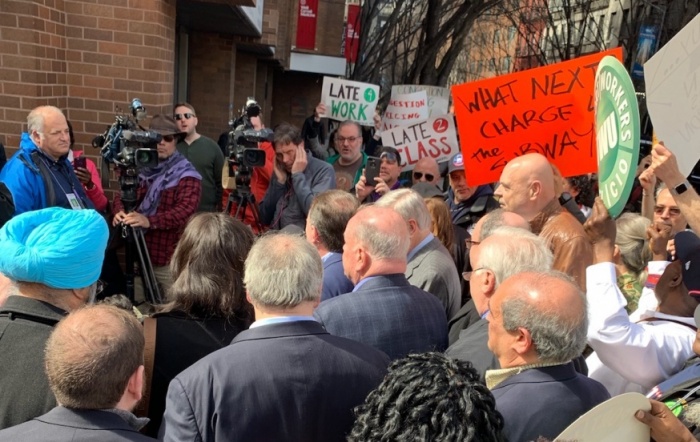
Supporters of the plan made their voices heard at an anti-congestion pricing press conference. (Riders Alliance)
March 25, 2019 By Laura Hanrahan
A group of congestion pricing supporters faced off with opponents of the tolled transportation plan at a press conference held by two state legislators and a local council member yesterday in Midtown.
Assembly Members David Weprin of Queens and Rodneyse Bichotte of Brooklyn, joined by Council Member Barry Grodenchik, were met with shouts of “working people take the subway,” and “vote them out” as the lawmakers announced their opposition to Governor Andrew Cuomo’s congestion pricing plan that would toll drivers entering the Manhattan business district below 60th Street.
The press conference, held at Tramway Plaza, located at the base of the Queensboro Bridge, focused on the idea that congestion pricing would hurt New York’s middle class. The lawmakers said that the plan, which would generate funds to help fund the dilapidated system, was not fair on middle income drivers.
“We want to fix our transit also, but we just don’t want to fix it with a congestion tax that will disproportionately affect [middle income] drivers,” Weprin said. “The entire MTA problem should not be on the backs of drivers in Manhattan.”
Biochette agreed, adding that the burden will be felt most by middle income workers. He said the wealthy will continue to take taxis and livery cabs to work, which will be paid for by their employers, and will be largely unaffected.
“The corporations are paying [their cab fares]. They will not feel it. Our constituents in the outer boroughs, immigrants, families, they are going to feel it,” Biochette said.
The speakers floated ideas to tax recreational marijuana, internet sales, and pied-à-terres as a means to fund the needed MTA repairs. It has been estimated that these initiatives could raise $10.25 billion in five years.
Cuomo has said, however, that the income stream generated from congestion pricing would allow the MTA to raise $15 billion through bonds.
Supporters of the congestion pricing plan shot down the notion that working class people—the vast majority of whom take public transit into Manhattan—would be significantly affected. A report by the Community Service Society found that only 4 percent of outer borough commuters drive into Manhattan on a workday. Of those who did commute by car, more than half were high-income earners.
“Opposing congestion pricing serves the wealthy few and will mean no end to terrible transit for the rest of us,” said Daniel Coates, Director of Campaigns and Organizing for Riders Alliance. “The congestion pricing plan under consideration is a progressive way to fund urgent repairs to the transit system so that working people can get to their jobs, pick up their kids and keep their medical appointments.”
As the subway system continues to deteriorate and bus ridership declines, the supporters demanded that the legislators take action now.
“New Yorkers are sick and tired of a small group of out-of-touch legislators standing in the way of improving our transportation system,” said Thomas DeVito, Senior Director of Advocacy for Transportation Alternatives. “It is outrageous that they’ve spent over 10 years kicking the can down the road on fixing our transit system, while offering zero solutions of their own.”
Cuomo has currently incorporated congestion pricing into the State budget, which will be voted on for approval before April 1.

